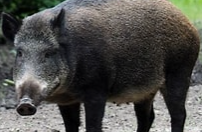Today’s News from the University of Kansas
From the Office of Public Affairs | http://www.news.ku.edu
Headlines
For good impression, leave cellphone alone during work meetings
LAWRENCE – To get on the good side of a new boss, colleague or acquaintance in a meeting, leave your cellphone stashed in your pocket. That’s the key finding of a new University of Kansas study comparing use of paper notebooks, laptop computers and cellphones in business settings. The study authors also found that apologizing for or explaining away cellphone use during a meeting won’t undo the negative impression.
Evolutionary biology may be solution to economic recovery
LAWRENCE — Researchers are examining policies that can help bring the global economy back on track. “But the question remains if traditional economic theorizing is up to that task to deal with a crisis like this — particularly a crisis that’s biological in origin,” said Armin Schulz, professor of philosophy at the University of Kansas. Schulz’s new book on evolutionary economics offers theories that could contribute to current economic and social policymaking.
Full stories below.
———————————————————————–
Contact: Rick Hellman, KU News Service, 785-864-8852, [email protected],
For good impression, leave cellphone alone during work meetings
LAWRENCE – To get on the good side of a new boss, colleague or acquaintance in a business meeting, leave your cellphone stashed in your pocket or purse.
That is the implication of a new study conducted by Cameron Piercy, University of Kansas assistant professor of communication studies, and Greta Underhill, KU doctoral candidate. “Expectations of technology use during meetings: An experimental test of manager policy, device use, and task acknowledgment” was published in the journal Mobile Media & Communication.
Looking at your phone during a meeting is akin to “phubbing,” or snubbing, your interlocutor in a strictly social setting, the study found.
The authors prepared video vignettes of people using either a paper notebook, a cellphone or a laptop computer while participating in a business meeting. They refer to this scenario as “multi-communication.” Then they asked 243 viewers to rate the distracted meeting members’ competence and the effectiveness of the meeting.
Other variables included the meeting manager’s expectations for technology use in the workplace and whether the users apologized later that their technology use was work-related.
It mattered not whether the cellphone user stipulated afterward that their usage was strictly business-related, researchers found. Viewers still downrated them and to a significant degree more than those who used a computer or notepad.
In a recent interview, Piercy said the results can largely be attributed to a phenomenon known to social scientists as “introspective illusion.”
“We know you can do work on your phone,” Piercy said. But he added that because we also know phones can be used to scroll idly through social media feeds, “we assume that you’re not working when we see you’re using it.”
This is true even of people who themselves use a mobile device during a business meeting.
“We can always infer our own thoughts and motives, but we can’t ever know a partner’s thoughts and motives, so we make negative assumptions about others, and we make excuses for ourselves,” Piercy said. “People expect that technology is used for ill, even when the person using the technology says their use is related to the topic of conversation.”
A manager’s attitude toward technology in the workplace does seem to matter somewhat, in terms of viewers’ evaluations.
“When the manager articulated a policy, those who acknowledged their multi-communication were evaluated higher and seen as more competent,” the authors wrote. “In the absence of a policy, the pattern is reversed. Finally, the means for communicator evaluation and competence were highest in the pro-technology policy condition. In all, when the manager’s policy is matched by employee’s behavior, outcome means tend to be higher.”
“The manager articulating a clear policy about expectations of technology use ought to affect the way that people engage with technology in the workplace,” Piercy said. “But so is the idea that people would be excused if they apologize for using technology. And in that case, we didn’t find a significant effect.”
However, the effect of cellphone use on viewers’ perceptions was dramatic.
“The effect for the phone is ginormous,” Piercy said. “It’s as big an effect as you’ll ever see in a social-science study — 30% of the variance. You can just look at the numbers and see it. But the notebook was less of a problem than the computer, which was less of a problem than the phone. So even if you were to use a laptop in the meeting, you’d be better off than using your phone because there was this big spike in all the numbers that are associated with using the phone, relative to the other two.”
Piercy noted that the study asked viewers to judge the interactions they saw on screen, simulating a meeting with a new person or boss. Attitudes might change, he said, in a situation where all the participants know each other – and the boss’s expectations — well.
————————————————————————
The official university Twitter account has changed to @UnivOfKansas.
Refollow @KUNews for KU News Service stories, discoveries and experts.
————————————————————————
Contact: Jon Niccum, KU News Service, 785-864-7633, [email protected]
Evolutionary biology may be solution to economic recovery
LAWRENCE — Researchers are examining policies that can help bring the global economy back on track.
“But the question remains if traditional economic theorizing is up to that task to deal with a crisis like this — particularly a crisis that’s biological in origin,” said Armin Schulz, a professor of philosophy at the University of Kansas.
“Or do we need to do something else?”
That “something else” is covered in his new book, “Structure, Evidence, Heuristic: Evolutionary Biology, Economics, and the Philosophy of their Relationship” (Routledge, 2020). Schulz considers a strategy of treating economic agents more as evolutionary systems with a biological history.
“Perhaps that would create a more solid foundation in order to get better policies. What the book is trying to do is say, ‘How can that be done, and what would be the implications of this?’” he said.
The book splits this examination into three sections: structural, evidential and heuristic forms. Schulz then analyzes five examples of evolutionary economics within these categories.
As an example of how this works, Schulz looks at decision-making in animals. Typically, economics is only studied from the perspective of human consumers, such as buying real estate or playing the stock market. But there are clear comparisons to what animals face.
“Non-human animals have to make many of the same economic decisions that humans do: whether to consume food now or save it for later; whether to join a coalition to overthrow a dominant member of society; or whether to spend more time foraging or to return home,” he said.
Specific studies show how humans tend to be loss averse: They prefer getting $100 for certain vs. a 50/50 gamble of getting $200 or nothing. But they also tend to prefer a 50/50 gamble of losing $200 and losing nothing vs. a sure loss of $100 (even if they have been given $100 to start with).
Capuchin monkeys show a similar preference: They prefer getting one apple slice for certain vs. a 50/50 gamble of getting two slices or nothing. But they also prefer a 50/50 gamble of losing two slices and losing nothing vs. a sure loss of one slice.
“In terms of expected outcomes, these cases are the same, it’s just the framing that differs,” he said.
Schulz believes a misunderstood aspect of this research is how prevalent it actually is.
“Many think it’s sort of a minor tweak or some strange thing that only three people are interested in,” he said. “Evolutionary economics is a big project that’s drawing on research from across the board. Lots of different scientists are relevant to this, and it can potentially have a big impact on our understanding of economic and social policymaking.”
Growing up in Mainz, Germany, Schulz studied philosophy and economics as an undergraduate in London. While in graduate school, he became captivated by the foundations of decision-making. But the theoretical models he analyzed felt very abstract to him.
“They were often conceived like hyper-rational, robotlike entities,” he said. “If this is meant to describe real people, how does it work? So I looked further into making sense of the pragmatic real world and biological reality underlying choice behavior.”
His first book, “Efficient Cognition: The Evolution of Representational Decision Making” (MIT Press, 2018), explores how organisms interact with the environment.
“The new book broadens what the previous one was,” said Schulz, who has taught at KU for six years. “It asks if evolutionary biological thinking can tell us something about these more general questions in economics.”
The professor joked that he specializes in generalizing.
“I am not a biologist, not an economist and not a cognitive scientist. I am the one who sits in between all of these and makes connections between them,” he said.
Schulz has two goals for his latest book, the most immediate of which is hoping it sparks a discussion about the merits of connecting evolutionary biology and economics.
He said, “My second goal is using these kinds of insights to make economic policy to actually change people’s lives for the better. But we first need to get more people on board.”
————————————————————————
KU News Service
1450 Jayhawk Blvd.
Lawrence KS 66045
Phone: 785-864-3256
Fax: 785-864-3339
Erinn Barcomb-Peterson, director of news and media relations, [email protected]
Today’s News is a free service from the Office of Public Affairs




